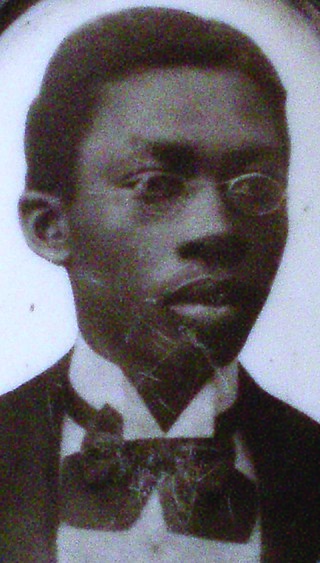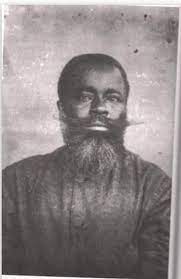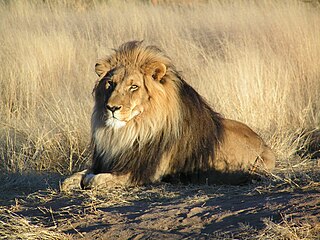Related Research Articles

The Igbo people are an ethnic group in Nigeria. They are primarily found in Abia, Anambra, Ebonyi, Enugu, and Imo States. A sizable Igbo population is also found in Delta and Rivers States. Ethnic Igbo populations are found in Cameroon, Gabon, and Equatorial Guinea, as migrants as well as outside Africa. There has been much speculation about the origins of the Igbo people, which are largely unknown. Geographically, the Igbo homeland is divided into two unequal sections by the Niger River—an eastern and a western section. The Igbo people are one of the largest ethnic groups in Africa.

The Bight of Biafra, also known as the Bight of Bonny, is a bight off the west-central African coast, in the easternmost part of the Gulf of Guinea.

The Royal Niger Company was a mercantile company chartered by the British government in the nineteenth century. It was formed in 1879 as the United African Company and renamed to National African Company in 1881 and to Royal Niger Company in 1886. In 1929, the company became part of the United Africa Company, which came under the control of Unilever during the 1930s and continued to exist as a subsidiary of Unilever until 1987, when it was absorbed into the parent company.

The Eastern Region was an administrative region in Nigeria, dating back originally from the division of the colony Southern Nigeria in 1954. Its first capital was Calabar. The capital was later moved to Enugu and the second capital was Umuahia. The region was officially divided in 1967 into three new states, the East-Central State, Rivers State and South-Eastern State. East-Central State had its capital at Enugu, which is now part of Enugu State.

King Jaja of Opobo belonging to the ijaw ethnicity, was the founder and first king of the Opobo Kingdom in present-day Rivers State and Akwa Ibom State of Nigeria.

The Legends of Africa reflect a wide-ranging series of kings, queens, chiefs and other leaders from across the African continent including Mali, Benin, Ghana, Nigeria, Congo, Ethiopia, Eritrea and South Africa.

Manillas are a form of commodity money, usually made of bronze or copper, which were used in West Africa. They were produced in large numbers in a wide range of designs, sizes, and weights. Originating before the colonial period, perhaps as the result of trade with the Portuguese Empire, manillas continued to serve as money and decorative objects until the late 1940s and are still sometimes used as decoration on arms, legs and around the neck. In popular culture, they are particularly associated with the Atlantic slave trade.

Bristol, a port city in south-west England, was involved in the transatlantic slave trade. Bristol's part in the trade was prominent in the 17th and 18th centuries as the city's merchants used their position to gain involvement. It is estimated that over 500,000 enslaved African people were traded by Bristol merchants.

William Allen Vivour was the single most successful 19th-century planter in Africa due to his substantial and flourishing cocoa plantation in Fernando Po. He was the son of a recaptive of Yoruba ancestry from present day Lagos and resettled in Sierra Leone by the British West Africa Squadron, and eventually settled in present day Equatorial Guinea and Nigeria.
The Kingdom of Bonny, otherwise known as Grand Bonny, is a traditional state based on the town of Bonny in Rivers State, Nigeria. In the pre-colonial period, it was an important slave trading port, later trading palm oil products. During the 19th century the British became increasingly involved in the internal affairs of the kingdom, in 1886 assuming control under a protectorate treaty. Today the King of Bonny has a largely ceremonial role.

Chief Oko Jumbo was an Igbo chief of slave descent in the Kingdom of Bonny, a state in the Niger Delta, now part of Rivers State, Nigeria. For many years in the 19th century he was the effective ruler of Bonny. Though the king in Bonny, and Warribo was the head of the Manilla House, "Oko Jumbo and Ja Ja were looked upon by every one as being the rulers of Bonny."

The Brass River is one of the branches of the Nun River, which in turn is a branch of the Niger River, in the Niger Delta in Nigeria. In the 19th century the river was an important trading route, first for slaves and later for palm oil. Brass River Crude Oil is named for a refinery on the river.
Alexander Miller was a Scottish merchant who was principal shareholder Miller Brothers along with his brother, George Miller. The firm was one of the four companies trading up the Niger River that merged to form the Royal Niger Company which held a Royal charter in the territories constituting most of Northern Nigeria Protectorate. After the merger, he became joint managing director and moved his offices from Glasgow to London.
Isaac Hobhouse was an English slave trader, merchant, and member of the Society of Merchant Venturers. Based in Bristol, he was at the centre of money, trade, and credit and acquired much of his fortune through the trade and exploitation of African slaves in the 18th century.
Henry Dampier was an English merchant, politician, and slave trader in Bristol, England during the 18th century. He was elected Sheriff and eventually Mayor of Bristol. Dampier was involved in the Society of Merchant Venturers for decades and is known for having traded in slaves during the Atlantic Slave Trade.
Walter Lougher was a merchant slave trader who became well known throughout the Bristol Area. He became a well and respected person among his peers and he participated in many slave voyages around the world.
Michael Becher was a Bristol-born English slave trader and merchant. Becher was from an established Bristol commercial family, and he took over his father's slave trading firm

Fubara Manilla Pepple, otherwise known as Fubara I Agbaa Pepple II, was a Nigerian monarch. He was the ruler of the Kingdom of Bonny from 1754 to 1792.
William Swymmer was a Bristol sugar merchant, involved in the slave trade. In 1667, he became a member of the Society of Merchant Venturers. He was an alderman in Bristol, and then Sheriff in 1679. Swymmer may have inherited a share in a sugar plantation in Barbados from his father. His brother Anthony Swymmer and his wife Elizabeth Swymmer were also involved in the slave trade. Records survive of the1684 correspondence from William Swymmer and William Hayman, to William Helyar, the Somerset owner of a Jamaica plantation, explaining why they were unable to provide the ten slaves they had contracted to supply. The deal was illegal, as the Royal African Company had a monopoly on the British slave trade at this point.

Liverpool, a port city in north-west England, was involved in the transatlantic slave trade. The trade developed in the eighteenth century, as Liverpool slave traders were able to supply fabric from Manchester to the Caribbean islands at very competitive prices.
References
- 1 2 3 Burns, Frederick Pedler ; with a chapter by Alan (1974). The lion and the unicorn in Africa : a history of the origins of the United Africa Company 1787-1931. London: Heinemann Educational. pp. 15–24. ISBN 0435326805.
{{cite book}}: CS1 maint: multiple names: authors list (link) - 1 2 3 4 5 6 Lynn, Martin (November 1992). "British Business and the African Trade: Richard & William King Ltd. of Bristol and West Africa, 1833-1918". Business History. 34 (4): 20–37. doi:10.1080/00076799200000115.